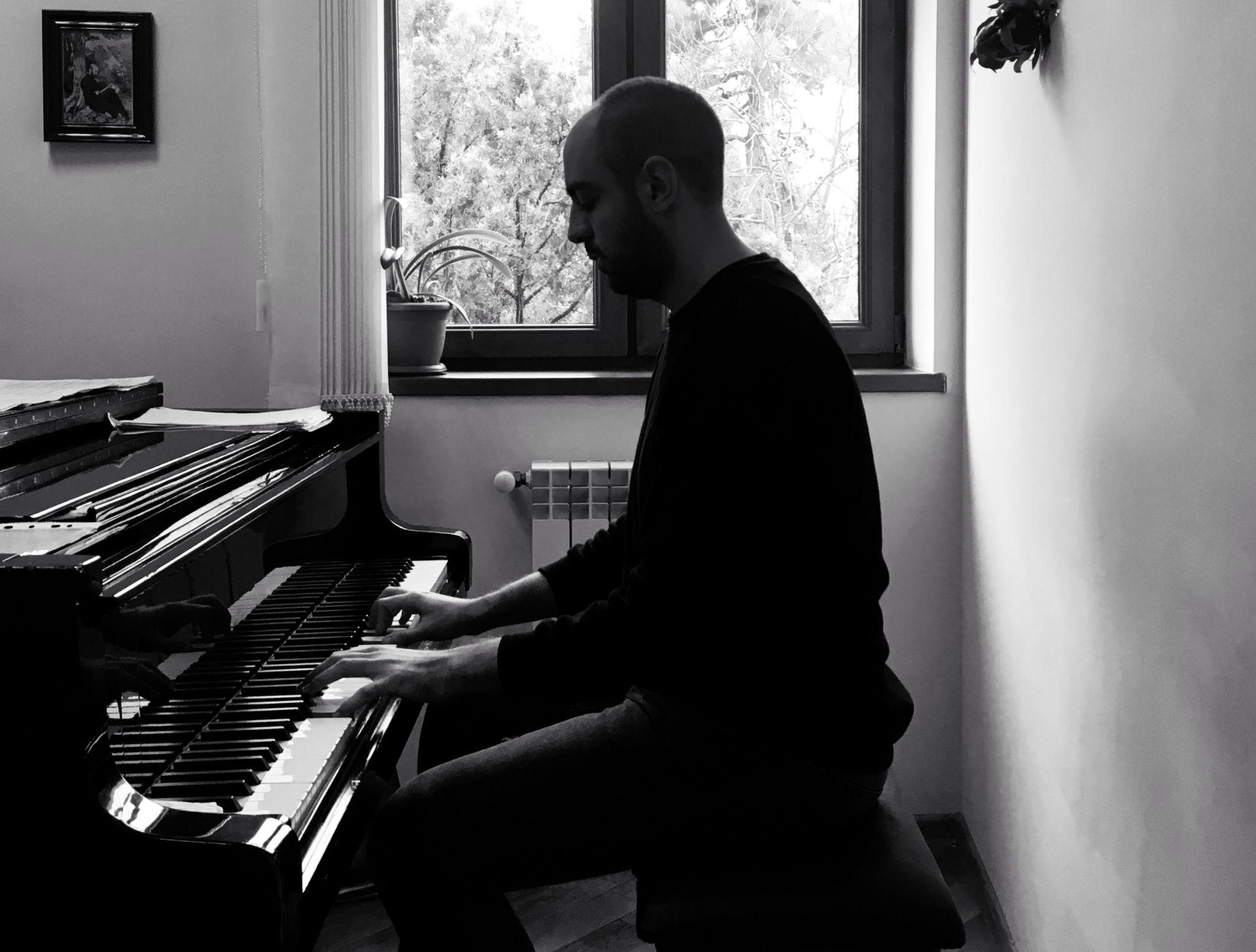News
Two-month blockade sets new extreme test for Nagorno-Karabakh’s ability to resist
Armenians of Artsakh are being deprived of one of the fundamental human rights —freedom of movement— and they are suffering from a lack of food, medicines, or hygiene products. Artsakh is completely dependent on Armenia —like a child from a parent. That is not patriotic speech, but a literal reality.
In this regard, there are many seriously ill patients who cannot receive medical services in Artsakh and do not have the opportunity to travel to Yerevan. Hospitals of Artsakh usually can take care of people with diseases, but, in some cases, patients have to be transported to Armenia, as there is no necessary medical equipment for them. That relates to cancer, for example. Hundreds of people are visiting Yerevan regularly for chemotherapy. In some cases, people with serious injuries died in Artsakh because they could not be transported to Yerevan.
Furthermore, thousands of families are now separated. People almost constantly travel to and from Yerevan for study, hospitals, work, cultural events, travel abroad, or visiting relatives. Many family members are buried in Yerablur (a military cemetery on a hilltop on the outskirts of Yerevan; since 1988, Yerablur has become the burial place of Armenian soldiers who died during the Nagorno-Karabakh conflict). Thus, many people involuntarily and according to the principle “at the wrong time, in the wrong place” ended up in the blockade “on the wrong side” —that is, “not at home.”
Another consequence of the blockade is the fact that food is scarce. The Artsakh government introduced a coupon system under which residents receive food on coupons. This system was popular after the Soviet Union collapsed and there was a lack of food and other necessary items. And here they are: people went back in time. Food shortage can be judged not only by empty shelves in stores, but also by rubbish. Starvation has already begun among homeless animals, as many residents have noticed that they have nothing to eat because people have nothing to throw away. And this could be the very first indicator of an impending catastrophe, the process of which has already been launched.
 A food coupon. / Unknown photographer.
A food coupon. / Unknown photographer.Noya Musayelyan is a 63-year-old woman. Her son is a military servant, who is spending most of the month at the border: “I know this is a hard period, but we try to stay resilient. I have a walking problem, but what can I do? I go to the shops and stand in queues that can last up to three hours. Because of the coupon system, there is a lack of food and whenever a shop gets something, everyone runs to get food for the family. I usually get the food and later share it with my elderly neighbours, that cannot go and stand in queues.”
In addition to the blockade, Azerbaijanis cut off the gas supply —again, the only one coming from Armenia to Artsakh. And there is usually a cold, mountainous winter in the region. The winter temperature fluctuates between -4 C and 0 C.
During the 2020 war, Artsakh Armenians lost a lot of territories, including those with power stations. Before the war, Artsakh was exporting electricity to Armenia; afterwards, it started to import it, as it had not enough. People were encouraged to use gas instead, as electricity was not stable. And now, Azerbaijanis also cut off the electricity line that provided locals with electricity from Armenia.
Young people hit
Because of that, schools and kindergartens were closed for almost two months. The children of Artsakh are again deprived of the right to receive an education. There was no way to heat the schools, and children caught colds and fell ill during classes. Another problem was that there was no food to bring to school, and sitting for 6 or 7 hours without food was difficult for the children. At the moment, the government of Artsakh is trying to install wood heaters in schools and resume classes.
As a result, people have no gas and hardly have electricity in a freezing winter. There is a schedule for electricity. Every district gets electricity for several hours. During the day, they turn it off six times.
Moreover, they also constantly cut the telephone and Internet connection, which is actually the only connection with the outside world.
Angelina Zakaryan is a 19-year-old student from Artsakh studying Chinese at Bryusov University in Yerevan, Armenia: “This is my first year as a student far from my parents and home. For some people, it could feel like freedom: when you’re alone and manage your life. But for me, it feels very tiring living alone without my supportive parents.”
She goes on: “I was really waiting for the holidays to go back home. I truly physically can't stay far away from my hometown for a long time. But omitting the fact of my homesickness, there is another problem for me, bigger than my emotional and physical health. Both my grandfather and my mother underwent surgery, and they need care. But there is only my father who can do it.”
Angelina explains: “I barely can stand the resulting situation. Because of stress, I can’t study, I can’t sleep, and I can’t eat normally. I also have some problems with my stomach now due to stress. I communicate with my parents any time it’s possible because it’s also a problem: they don’t always have electricity and Internet, and sometimes they just can’t receive calls. They act like everything is okay and they have no need for anything, just because they don’t want me to worry and get more stressed. But sometimes I can hear mom’s voice that she was crying.”
Goga Baghdasaryan is a vocal teacher in Artsakh: “After the exams and holidays, we had to start a new program with the students. However, for a known reason, the learning process suffered a lot. There was no class for more than a month. Gas was available for a few days, and we only managed to distribute the program for the new semester. As a teacher, it is very difficult for me to see the students’ feelings. They are the same teenagers who lost their homes during the war, lost their fathers, and lost their families. Education is now the most important thing for them, because it is the only way to build a stable future.”
 Goga Baghdarsyan. Imatge: Lika Zakaryan.
Goga Baghdarsyan. Imatge: Lika Zakaryan.“Although school classes have been stopped, I have continued to give private lessons in my studio. The demand for vocals has increased, as many people also attend as a therapy. They say that the psychologist advised attending the classes so that they get rid of stress.”
“[These are] Very sad days... I remember an old woman standing in line who waited for hours to buy cheese. And as soon as it was her turn, there was no cheese anymore. And she said: ‘After all, I can’t make it without cheese, what should I do now? I can’t return home empty-handed.’ And so, sadly, she returned home with an empty plastic bag,” Goga tells us.
“Of course, it is not only about food. I was planning to travel. I haven’t been anywhere for a long time. I was going to spend the holidays somewhere in Europe. In addition, I planned to attend a master class in Spain to improve my professional skills and to organize my concerts in Yerevan. Again, that failed...”
“Everything has changed a lot. After all, people are deprived of many simple things. In the past, if you were a guest at someone’s house with an apple in your hand, they would say: what is this?, what a shame... But now, if you take a banana or half a cabbage and go as a guest at someone’s house, you will be their most valuable guest. Indeed, the times dictate the definition of luxury,” says the teacher.
Aid
The International Committee of the Red Cross is actively involved and is doing its best to support people in Artsakh. Since 16 December, they started to get the green light to transport serious medical cases from and to Artsakh. Also, the organization managed to transport people for a family meeting, food, and medical supplies.
Russian peacekeepers are also trying to support the residents of Artsakh by transporting food and medicine sometimes.
Some Artsakh teenagers were sent to participate in the Junior Eurovision, which took place in Yerevan, Armenia, on 11 December. They travelled to Yerevan for a day, but one day that became months. Only recently, the ICRC and Russian peacekeepers brought them back to Artsakh.
The people of Artsakh are very worthily passing all the tests that have fallen on them since 2020, when Azerbaijan attacked Artsakh and took over more than 70% of the lands. People fall asleep, not knowing for sure if they will wake up. They raise and prepare children for adulthood without knowing whether they will be able to survive and grow up. They set a wedding date, although they are not sure whether this day will come or whether it will not be a shame to celebrate it. Likewise, they are saving money for a ticket for a very long-awaited trip, but they are not sure whether they will be able to leave the city for a few days or if the road will be open.
What is scarier: falling in water which gradually heats up to the boiling, or falling straight into boiling water? If water is hot from the beginning, a person experiences shock, and the instinct of self-preservation helps him or her do something to get out of the water. But when you get gradually used to the water, the feeling of anxiety may not show up. All the inhabitants of Artsakh are now in such a state.
